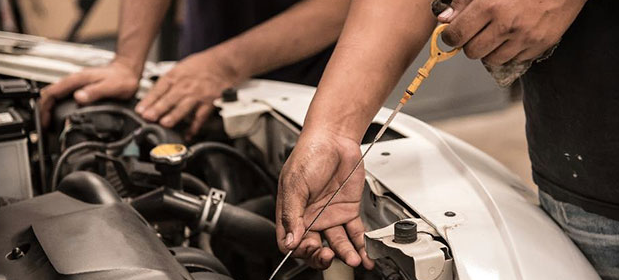1. Introduction: Why Car Maintenance Costs Matter
For most people, owning a car is a necessity. It provides us with the freedom and convenience to go where we want, when we want. However, owning a car also comes with a cost. In addition to the initial purchase price, there are ongoing expenses such as fuel, insurance, and maintenance. Of these, maintenance is often the most overlooked and underestimated cost. But neglecting your car’s maintenance can lead to costly repairs and even safety hazards. In this guide, we’ll explore how much you can expect to pay for car maintenance and why it’s important to invest in your car’s upkeep.

2. Understanding the Different Types of Car Maintenance
Car maintenance can be broken down into two main categories: regular maintenance and major repairs. Regular maintenance includes routine tasks such as oil changes, tire rotations, and brake inspections. These tasks are necessary to keep your car running smoothly and prevent more serious problems from developing. Major repairs, on the other hand, are unexpected and often expensive. Examples include engine or transmission repairs, suspension work, and electrical issues. While regular maintenance can help prevent major repairs, they can still occur due to wear and tear or accidents.
3. How Much Should You Expect to Pay for Regular Maintenance?
The cost of regular maintenance can vary depending on the make and model of your car, as well as your location and the service provider you choose. However, there are some general guidelines you can follow. For example, an oil change typically costs between $20 and $50, while a tire rotation can cost around $20. Brake inspections are usually free, but if you need new brake pads or rotors, you can expect to pay between $100 and $300 per axle. Other common maintenance tasks include replacing air filters, spark plugs, and fluids such as coolant and transmission fluid. These tasks can range from $50 to $200 each.
4. The Cost of Major Repairs: What to Expect
Major repairs can be much more expensive than regular maintenance tasks. The cost can vary widely depending on the type of repair needed and the severity of the problem. For example, replacing an engine can cost anywhere from $3,000 to $10,000 or more. Transmission repairs can also be costly, ranging from $1,500 to $5,000. Suspension work can cost between $500 and $1,500, while electrical issues can be difficult to diagnose and repair, with costs ranging from $100 to $1,000 or more. It’s important to note that these are just estimates and the actual cost can vary depending on your location and the service provider you choose.
5. Tips for Reducing Car Maintenance Costs
While car maintenance is necessary, there are ways to reduce the cost. One of the most effective ways is to follow your car’s maintenance schedule. This will help prevent major repairs and prolong the life of your car. Another tip is to shop around for service providers. Prices can vary widely, so it’s worth getting quotes from multiple providers. You can also consider doing some maintenance tasks yourself, such as changing your own oil or replacing air filters. However, it’s important to have the right tools and knowledge to avoid causing more harm than good.
6. DIY vs. Professional Maintenance: Which is Right for You?
Deciding whether to do your own maintenance or hire a professional can be a difficult decision. DIY maintenance can save you money, but it’s important to have the right tools and knowledge. If you’re not comfortable working on your car, it’s best to leave it to the professionals. Professional maintenance can be more expensive, but it comes with the peace of mind that the job is done correctly. It’s also worth considering the warranty on your car. Some warranties require that maintenance be performed by a certified professional in order to remain valid.
7. Conclusion: Investing in Your Car’s Maintenance
Car maintenance costs can add up quickly, but neglecting your car’s upkeep can lead to even more expensive repairs down the road. By following your car’s maintenance schedule, shopping around for service providers, and considering DIY maintenance when appropriate, you can reduce the cost of car maintenance while still ensuring that your car runs smoothly and safely. Remember, investing in your car’s maintenance is an investment in your own safety and peace of mind.

